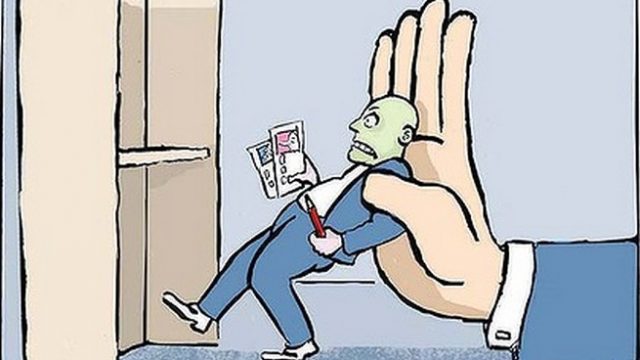Matt Evans: If Australia Jumped Off A Bridge, Would You?

This week, President Obama was doing a bit of public speculating about the effects of hypothetical mandatory voting in the US. I say public speculating because I don’t think this is an issue that the President wants to take up and drive towards becoming policy.
To lend credibility to the idea, Obama points out that Australia has mandatory voting, presumably because few people think Australia is all that bad of a place. Of course, many other places have also had mandatory voting at times, and those comparisons aren’t as charitable.
Currently, 11 countries enforce mandatory voting policies. About half of them are in South America. You can make your own conclusions about the list by viewing it here.
Additionally, Obama seems to suppose that the Australian experience has been a positive one. That’s by no means a universally held view. I found an entire website written by Australians who have done a good job of providing detailed and substantiated arguments against the compulsory vote in their country. You can read more at http://www.compulsoryvoting.org/index.html
[mks_pullquote align=”right” width=”300″ size=”24″ bg_color=”#000000″ txt_color=”#ffffff”]The President supposes that mandatory voting would change who participates and that this would have far reaching electoral consequences. What he didn’t quite say, but what we might assume from other things he has said in the past, is that more people who are likely to vote for candidates like him will somehow start voting…[/mks_pullquote]
The President supposes that mandatory voting would change who participates and that this would have far reaching electoral consequences. What he didn’t quite say, but what we might assume from other things he has said in the past, is that more people who are likely to vote for candidates like him will somehow start voting, and that this is a morally positive outcome because these people are currently outside of the political process, and are perhaps impoverished.
This naive idea is actually addressed by the Australian site I linked to above, as one of their Frequently Asked Questions:
“Apart from the fact that it might not be that easy to discern the injustice in denying something to a person who doesn’t want it in the first place, one also might wonder how there can be a bias when the person initiating and the person receiving the bias are one and the same. The poor and the marginalised are ‘denied’ the vote because the poor and the marginalised themselves decide that they don’t wish to vote.”
Finally, something that many Americans might not realize is that voting works fundamentally differently in Australia.
It turns out that there are many different ways to hold elections and mark ballots. In the US, most elections of individuals to single contested positions use a mechanism informally called “first past the post”, that is, the first candidate to get a majority of votes for that position wins that position. Additionally, the way ballots are marked and counted for these positions is a singular choice: each voter marks 1 and only 1 preference.
Other systems exist. For instance, some elections used “ranked choice” ballots, where out of a list of candidates, each voter ranks the candidates in order of their own preference. Their favorite candidate gets a “1”, their second favorite candidate is ranked “2”, and so on. The ballots can be added together in a variety of different ways, but because all of the candidates are ranked on each ballot, the electioneers can consider people’s 2nd and 3rd tier choices when looking for a candidate with the broadest appeal to the most number of voters.
Proponents of ranked-choice voting systems argue that voters can “safely” indicate their preference for a reform candidate outside of the mainstream, while still marking their 2nd choice as one of the mainstream candidates that is closer to their views. This allows people to vote their conscience without being concerned that they are “wasting their vote”. For instance, in the 2000 US Presidential election, a ranked choice ballot would have allowed Progressives to cast their first vote for Ralph Nader, and then mark Al Gore as their second choice. Under the US system, many progressives are still bitter that people who voted for Ralph Nader “stole” the election from Al Gore and handed it to George Bush.
[mks_pullquote align=”left” width=”300″ size=”24″ bg_color=”#000000″ txt_color=”#ffffff”]…the way Australia votes and fills elected seats is very different from how we vote and how we fill elected seats. Therefore, I’d argue that it’s somewhere between ignorant and dishonest to suppose that the US could adopt mandatory voting because Australia does it.t[/mks_pullquote]
Australia, as luck would have it, uses a form of ranked choice voting called “Instant Runoff Voting”. The balloting and voting process in Australia is fundamentally different from how we vote here in the US.
Furthermore, when Australia votes for multi-individual elections — like how to fill up representative bodies — it adheres to a doctrine called “proportional representation”. Proportional representation holds that the composition of the elected body actually reflects the preference percentages of the voting public. Unlike “first past the post” voting in the US, in a proportional representation system, even if only 10% of folks wish for a Libertarian candidate to win, 10% of the available seats will be awarded to candidates from the Libertarian party.
As you can see, the way Australia votes and fills elected seats is very different from how we vote and how we fill elected seats. Therefore, I’d argue that it’s somewhere between ignorant and dishonest to suppose that the US could adopt mandatory voting because Australia does it.
Our voting systems and election systems are radically different, irrespective of how many people vote. President Obama may or may not realize that, but hopefully, now you do.




